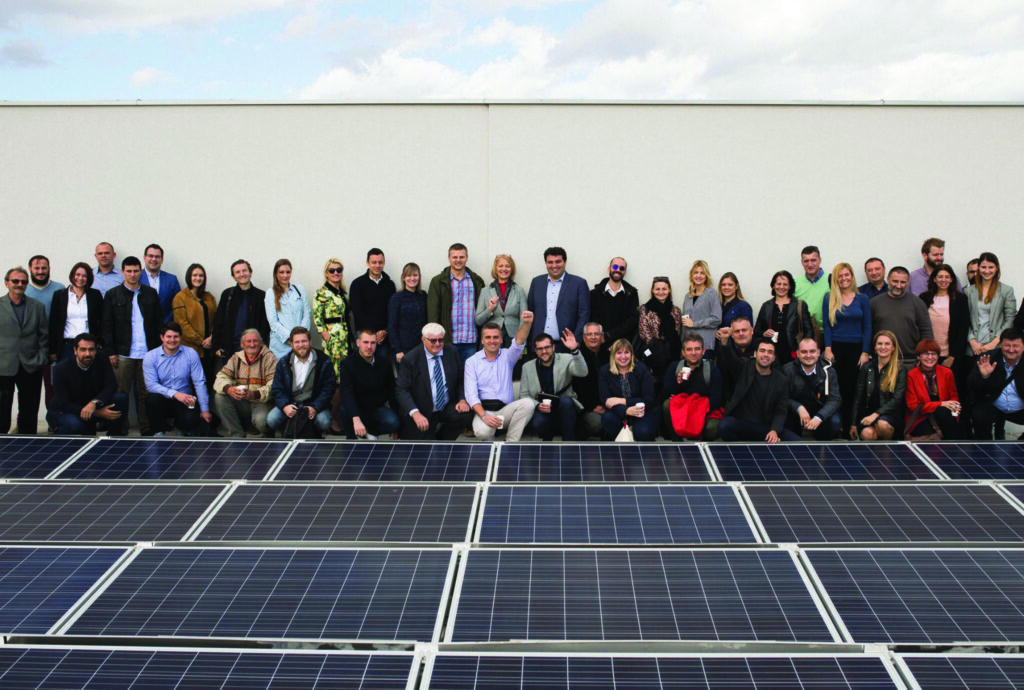Rethinking Europe’s Energy Future with People First
As energy prices rise, citizen power could drive Europe’s fairer transition.
At the European Union Sustainable Energy Week (EUSEW) 2025 in Brussels, a room filled with policy-makers, researchers, regulators, and academics – all dissected the issue of energy affordability. Yet, as graphs flashed across screens and solutions were debated, the irony hung heavy: the voices of those most affected by rising energy costs – single parents, pensioners, and low-income families – were absent. But while they weren’t in the room, a handful of citizen-led energy communities offered a glimpse of how the energy transition could become more inclusive.
Who pays the price?
What quickly became clear is that Europe’s energy costs are anything but evenly distributed. Giorgos Koukoufikis of the Joint Research Centre pointed to a bitter irony: the poorest Europeans often pay the highest prices to heat the worst homes. Since 2015, housing costs have surged, with newer homeowners facing higher heating costs. Anne Weidenbach, from the office of the European Commissioner for Energy and Housing, Dan Jørgensen, laid out the numbers: over 70% of Europeans live in inefficient buildings. Nearly 40% of EU energy consumption comes from housing. The scale of this challenge has made housing and energy efficiency one of the top priorities of the current EU mandate.
The poorest Europeans often pay the highest prices to heat the worst homes.
Giorgos Koukoufikis, Joint Research Centre
The EU has responded with a suite of funding schemes to tackle this crisis, such as the Cohesion Fund, the Affordable Energy Action Plan, and the developing Citizen Energy Package, just to name a few. But as these plans are in progress, citizens are not wasting any time when it comes to powering their communities.
Power from the people to the people
In Ghent, citizens have already reduced carbon dioxide emissions by 20% and aim to achieve climate neutrality by 2050. The city offers free renovation guidance – an investment that, according to one local councilor, yields €17 in energy savings for every euro spent on advice. It’s a compelling argument in Belgium, where taxes account for up to 58% of energy bills, and electrifying a home can cost four times more than sticking with gas, as Julie Frière of Test Achats pointed out.
The shift toward smarter energy decisions isn’t limited to urban Western populations; consumers and prosumers elsewhere are also gaining access to tools that make efficiency and affordability more attainable. Across Europe, energy communities are rewriting this narrative. In more remote regions like the Greek islands, organisations such as DAFNI are helping local communities roll out initiatives like the Pact of Islands – a coalition of 30 islands committed to cutting carbon dioxide emissions. Some islands, like Tilos, have gone further, building hybrid renewable energy plants and moving towards full energy self-sufficiency and zero waste.
In Croatia, a community milestone illustrates the growing momentum. In April, ZEZ Sun, Croatia’s first citizen-owned solar power plant, began operating on the roof of the city market in Križevci – a town of 20,000 residents. The 200-kilowatt solar installation, managed by the cooperative ZEZ Sun, was funded by 127 local members who collectively raised €140,000 in just 10 days. Members receive annual returns of 3%, while a portion of profits is channelled into a community benefit fund to combat energy poverty and support environmental projects.

Locals in Telheiras, greater Lisbon, have teamed up with parishes since 2020 to install solar panels and lower their energy bills – proof of what’s possible when communities take charge of their energy future. But for many others, the process remains slow and frustrating. Despite the potential, Portugal counts just nine officially registered renewable energy communities, as bureaucracy and technical hurdles often stall citizen-led initiatives.
Not just science and politics
“Energy is more than kilowatts,” Aurore Dudka of the European Climate Pact told one session. “It’s about connection, care, and political engagement.” That’s where Europe’s real opportunity lies. Decarbonisation, decentralisation, digitalisation – these aren’t just technical transitions. They’re also social ones. When communities take ownership, through peer-to-peer learning, shared governance, and local leadership, energy becomes democracy in action. Too often, the complexity drives people away, but by providing hands-on guidance, inclusive installation schemes, and trusted local networks, we can shift behaviours faster.
Energy is more than kilowatts; it’s about connection, care, and political engagement.
Aurore Dudka, European Climate Pact
Energy communities foster a sense of collective responsibility, allowing citizens to directly participate in shaping their energy futures. This shared ownership not only improves acceptance of renewable projects but also keeps economic value within the community, boosting local resilience. Without streamlined governance structures, transparent rules, and accessible support mechanisms, many willing citizens remain excluded from participation.
The view outside Europe
While policy-makers gathered in Brussels for EUSEW, a parallel press briefing offered a stark reminder that Europe’s energy challenges exist on a very different scale elsewhere. International Solar Alliance (ISA) Director General Ashish Khanna laid out the numbers: of the nearly $2 trillion (€1.85 trillion) invested globally in clean energy last year, only 15% reached low- and middle-income countries. For Africa, that share drops to a mere 2%, leaving 600 million people still without electricity.
In European terms, that’s almost twice the population of the EU living without power. ISA’s $200 million (€185 million) fund aims to mobilise private investment in distributed renewable energy across Africa, taking inspiration from Europe’s emerging community models. With solar costs down 82% over the past decade and another 12% drop in 2023 alone, the technology is ready. If Lisbon’s neighbours can adapt to affordable solar, why can’t Lagos?
The real test for Europe’s energy transition isn’t technological – it’s political. Clean energy isn’t affordable until it’s affordable for everyone. That means cutting red tape, accelerating financing, and putting true power – literal and democratic – into the hands of communities.